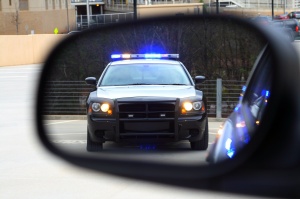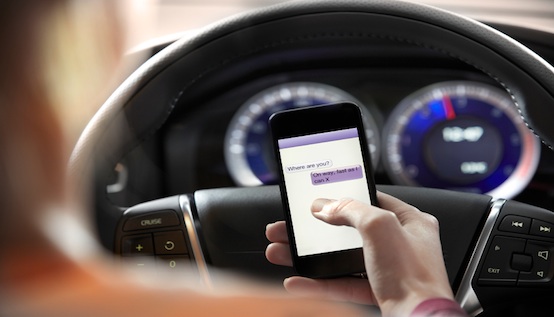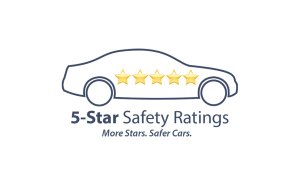When You See the Police Car
If a police car is following you with its siren blaring or emergency lights flashing, pull over to the right quickly (but safely) and come to a complete stop in a safe place.
Pulling over right away isn’t an admission of guilt. It just means that you were alert to everything that was happening around you. Also, by stopping as soon as you can, you’ll  have a better chance of figuring out exactly where and how the officer says you violated any traffic laws. This information can be useful should you and a lawyer later need to prepare a defense.
have a better chance of figuring out exactly where and how the officer says you violated any traffic laws. This information can be useful should you and a lawyer later need to prepare a defense.
Pull over in a way that will be most likely to calm down an angry or annoyed traffic officer. Use your turn signal to indicate any lane changes from left to right, and slow down fairly quickly, but not so quickly that the officer will have to brake to avoid hitting you. Pull over as far to the right as possible, so that the officer won’t have to worry about being clipped by vehicles in the right lane when coming up to your window.
Right After You Stop
After you’ve pulled over to a safe spot, you should normally turn off your engine. At this point, you might want to show the officer a few other token courtesies. You have little to lose and perhaps something to gain.
Roll down your window all the way. Put out a cigarette if you have one and discard any chewing gum (within the car). You might also want to place your hands on the steering wheel, and, if it’s dark, turn on your interior light. These actions will tend to allay any fears the officer might have. After all, police officers have been killed in traffic-stop situations, and the officer’s approach to the vehicle is potentially the most dangerous moment.
Your dignity might be offended a little at this point, but remember that you’re just doing a few simple things to put the officer in an optimal frame of mind.
Also, stay in the car until and unless the officer directs you to get out. Finally, don’t start rummaging through your back pocket for your wallet and license, or in your glove compartment for your registration, until the officer asks you for them. For all the officer knows, you could be reaching for a weapon.
Excuses to Search
A police officer who stops you for a traffic violation is normally not allowed to search your vehicle. But there are several exceptions to this general rule.
After pulling you over, an officer will watch for any sort of “furtive movement.” A sudden lowering of one or both shoulders, for example, will tip the officer off that you’re attempting to hide something under the seat.
An officer enforcing a traffic stop isn’t looking just for furtive movements. Officers will look for anything incriminating that’s in “plain view” (like open beer or wine bottles, joints, or roach clips). Discovery of one item in plain view often leads to a thorough search that reveals more incriminating or illegal objects.
If you’re arrested and your car is towed, the police may generally make an “inventory search” afterward, even if they have no reason to suspect there’s anything illegal inside.



 have a better chance of figuring out exactly where and how the officer says you violated any traffic laws. This information can be useful should you and a lawyer later need to prepare a defense.
have a better chance of figuring out exactly where and how the officer says you violated any traffic laws. This information can be useful should you and a lawyer later need to prepare a defense.